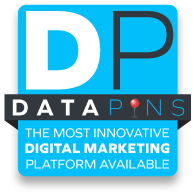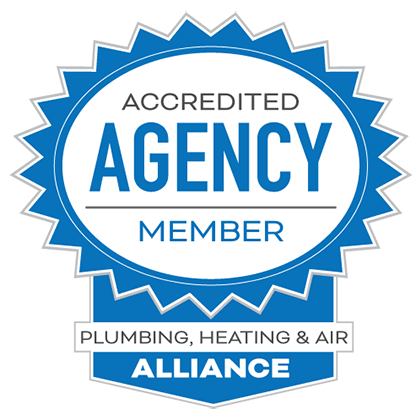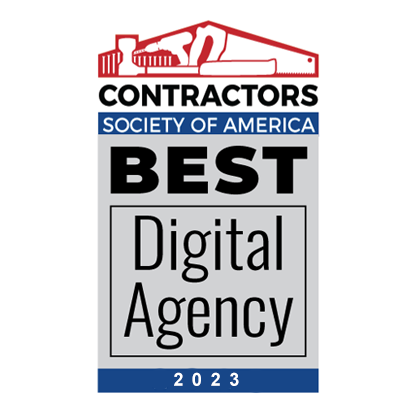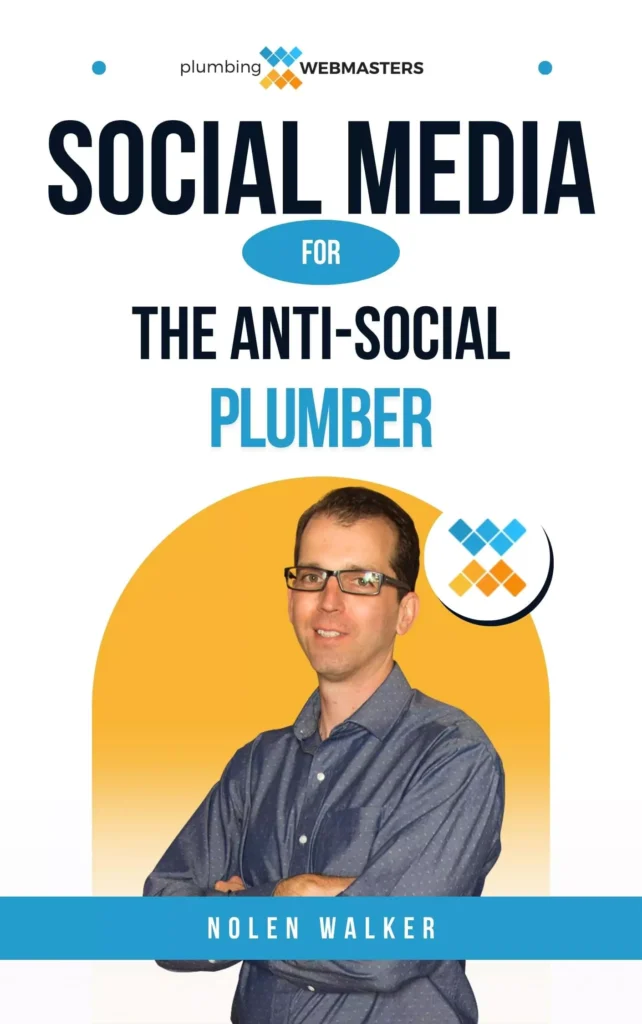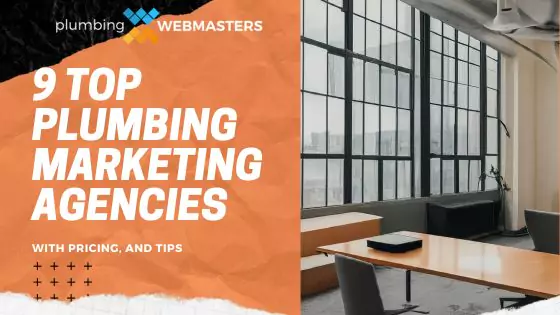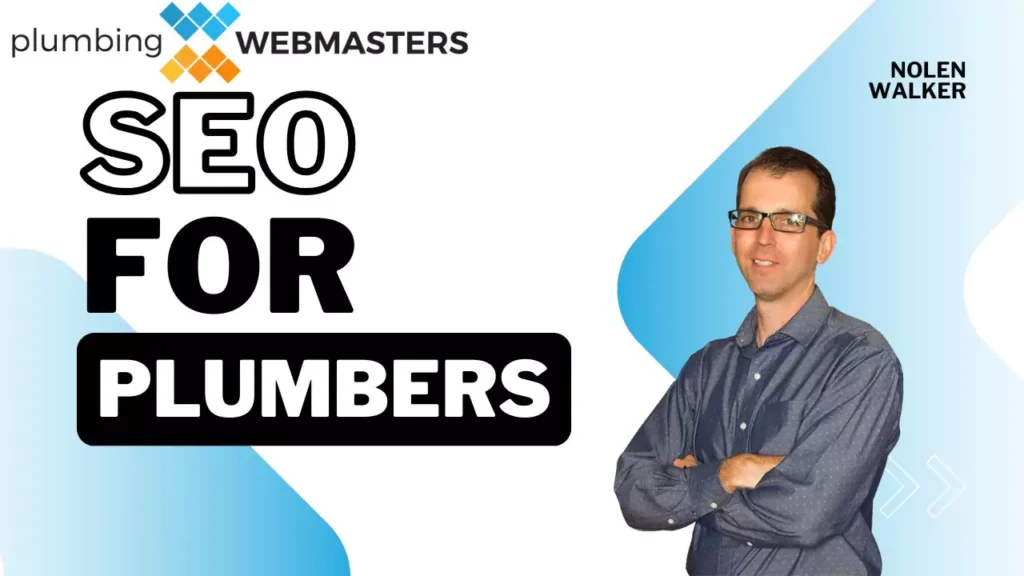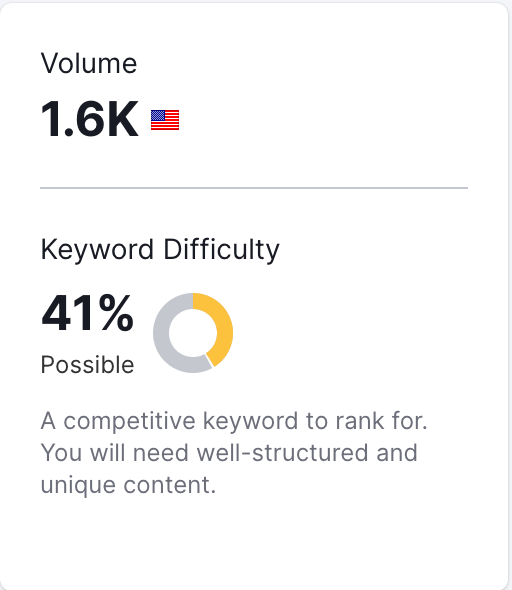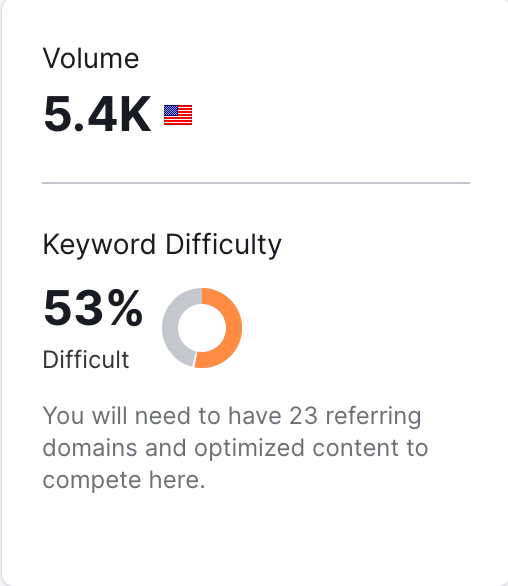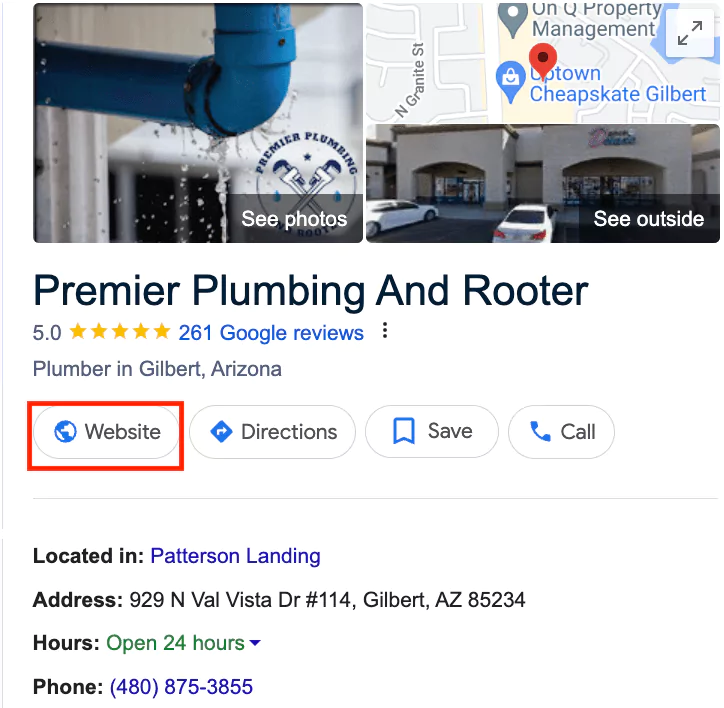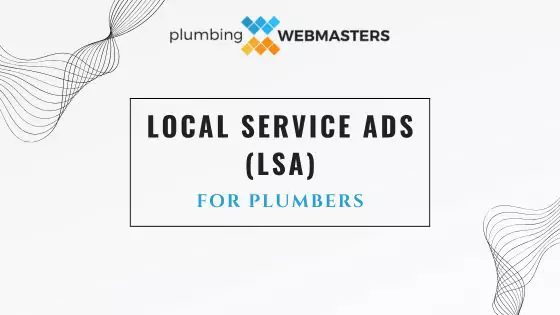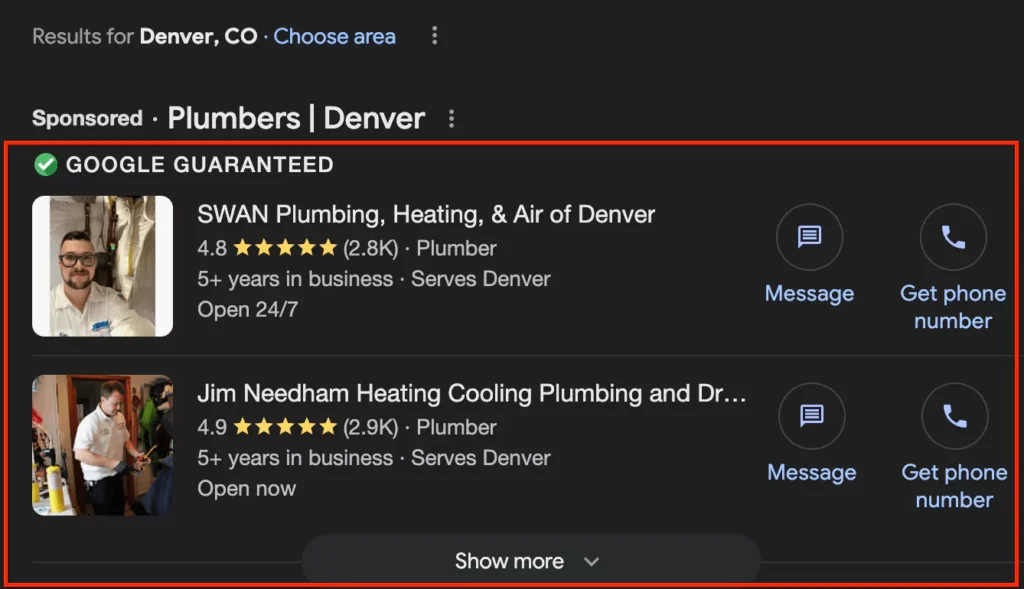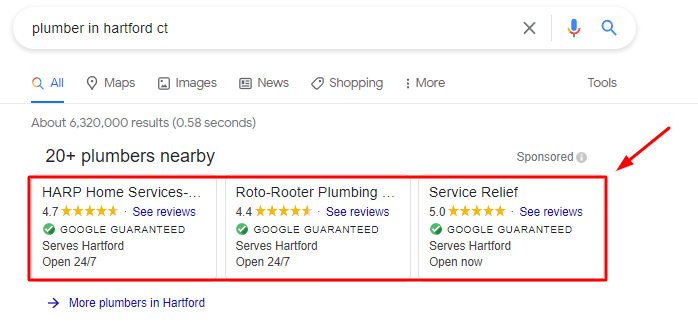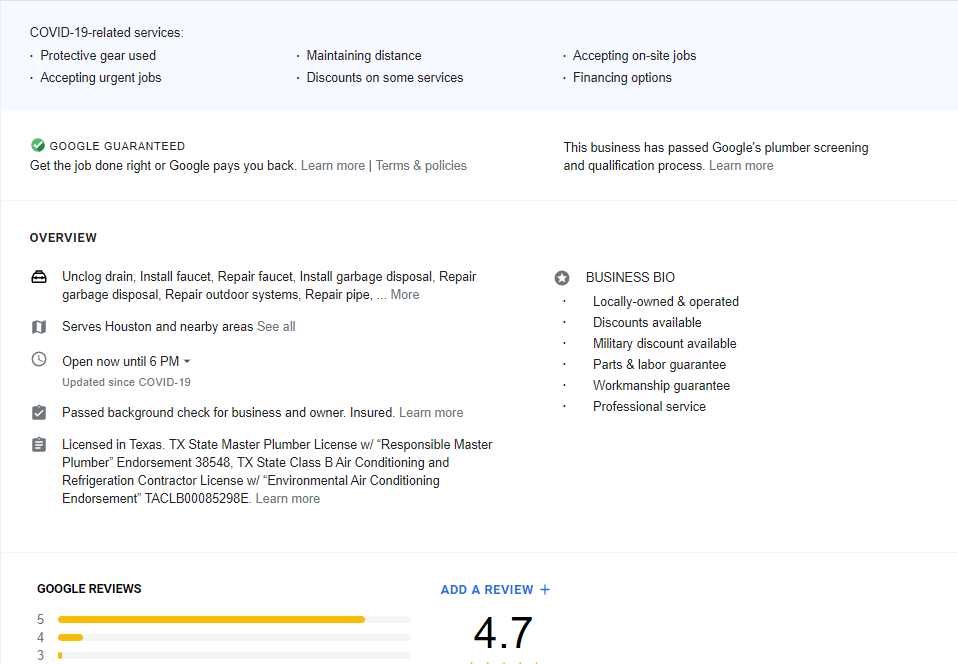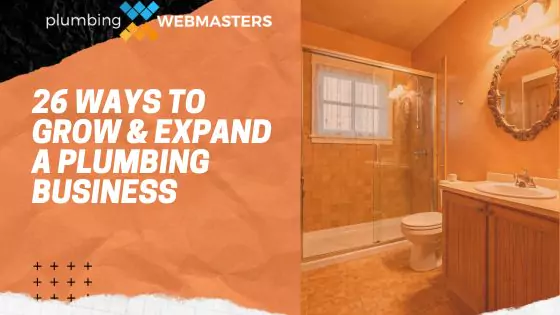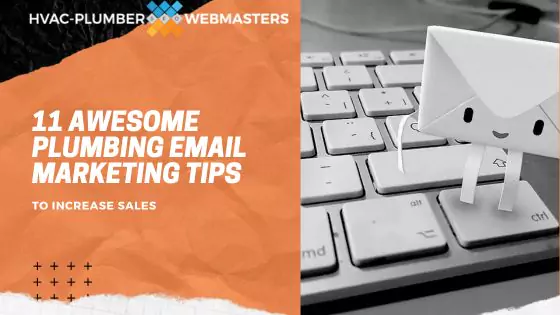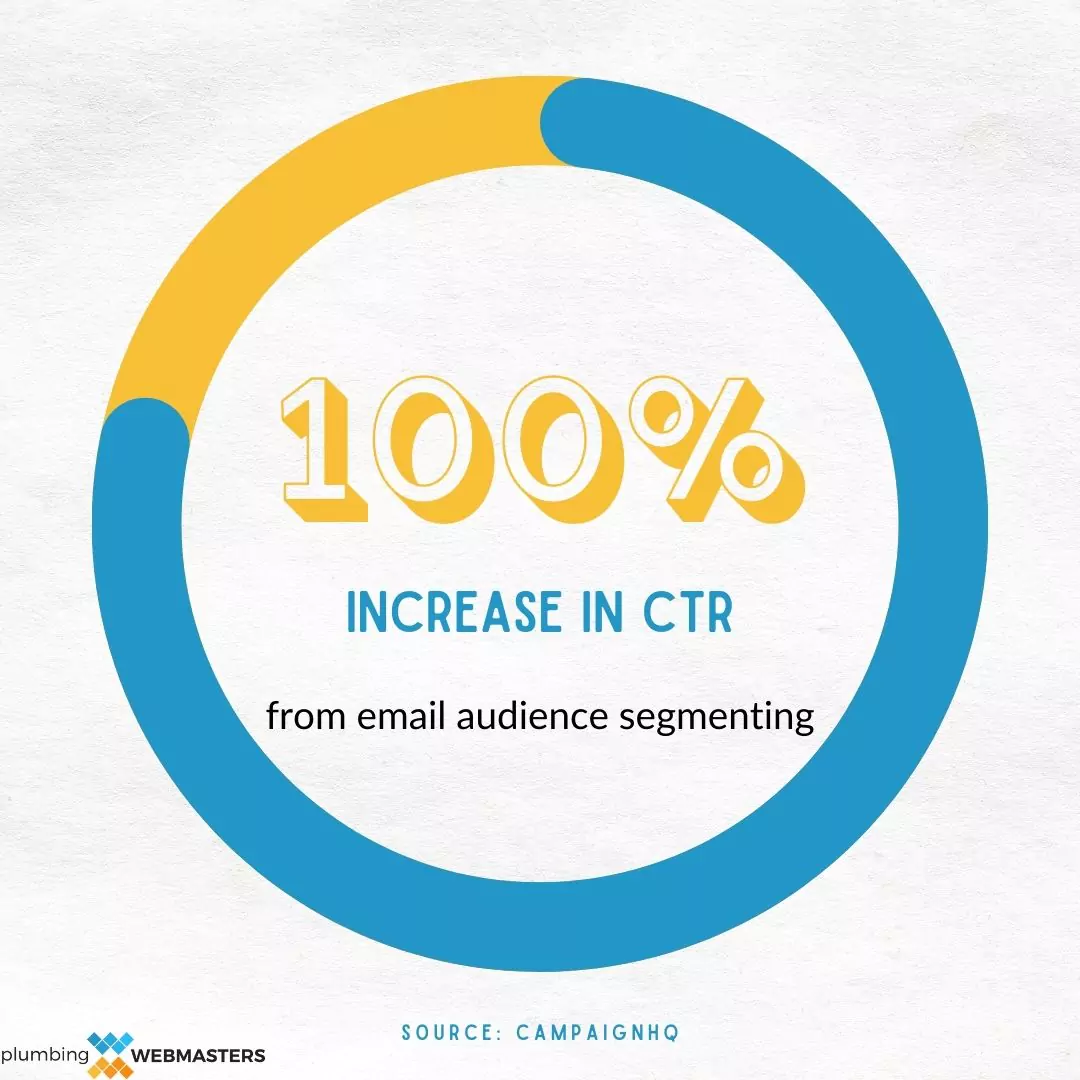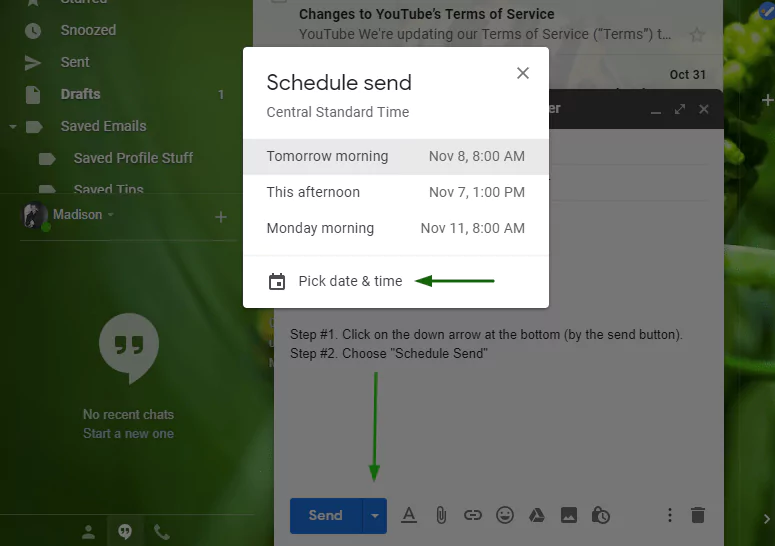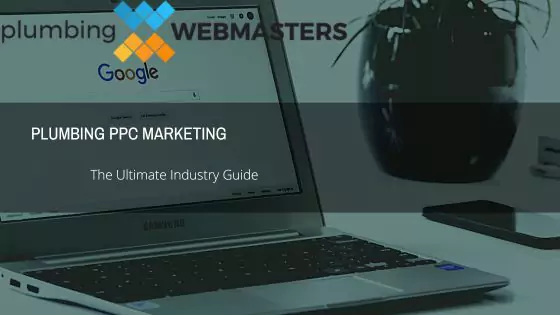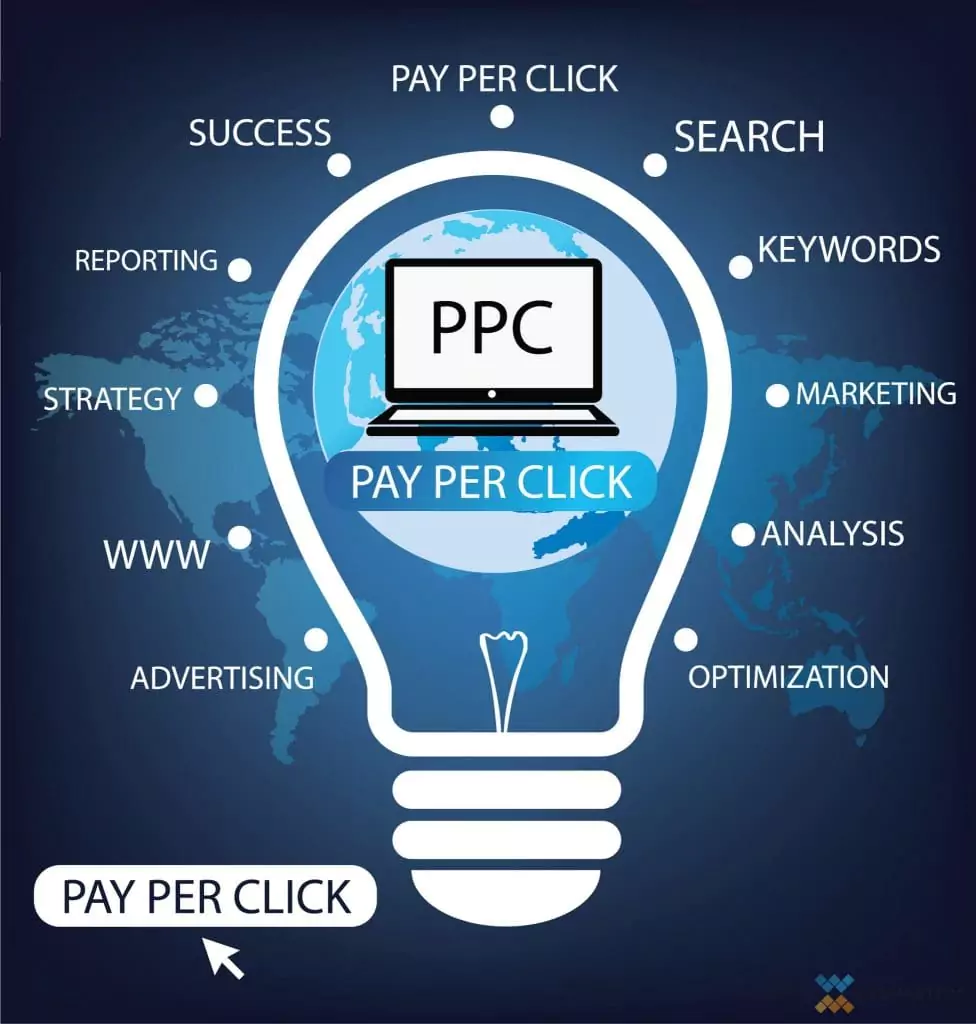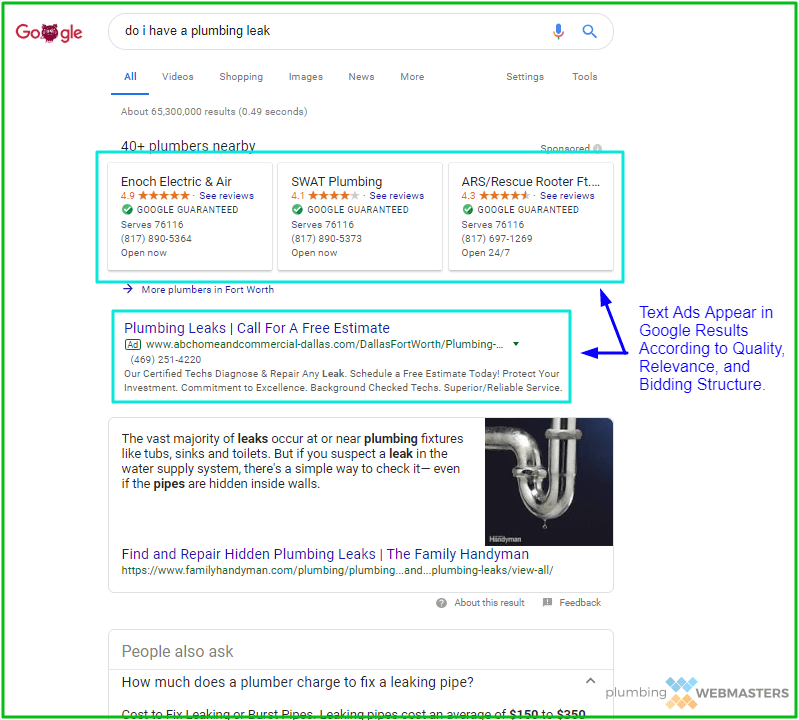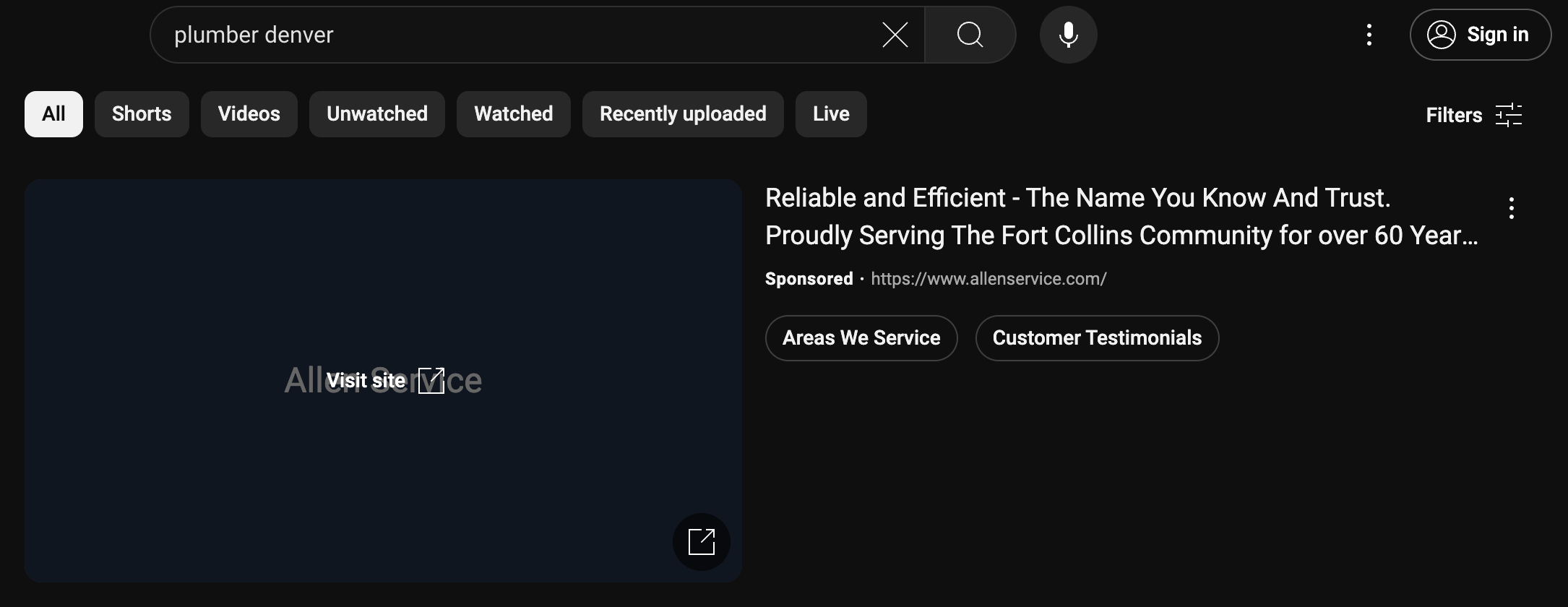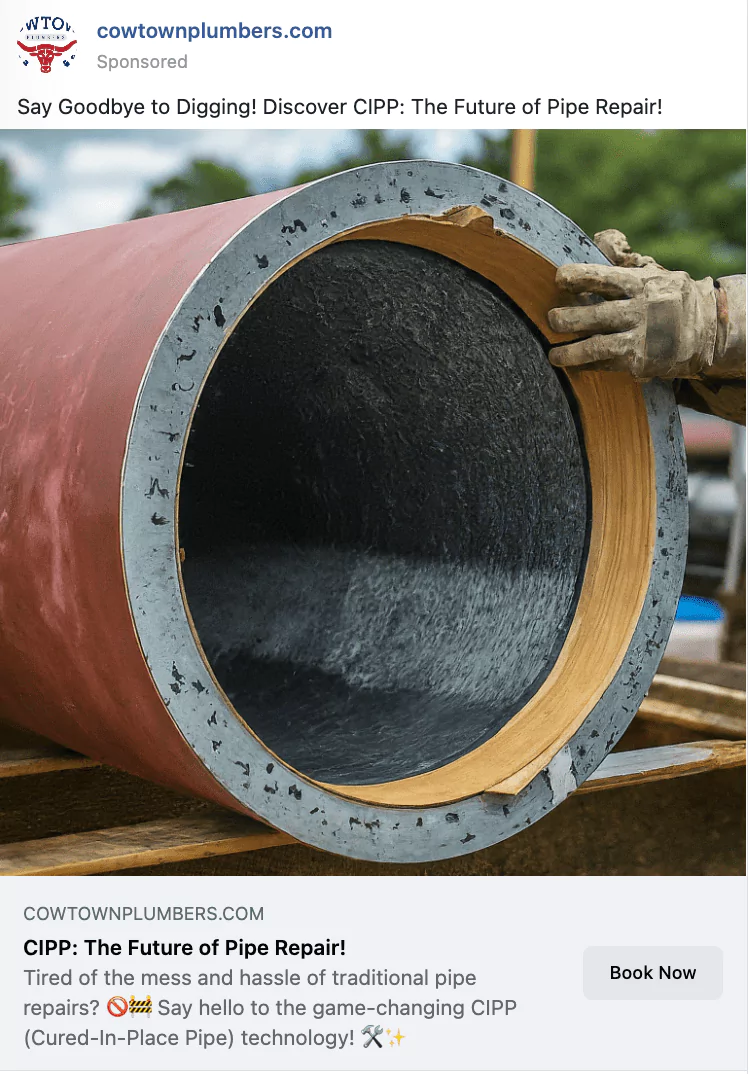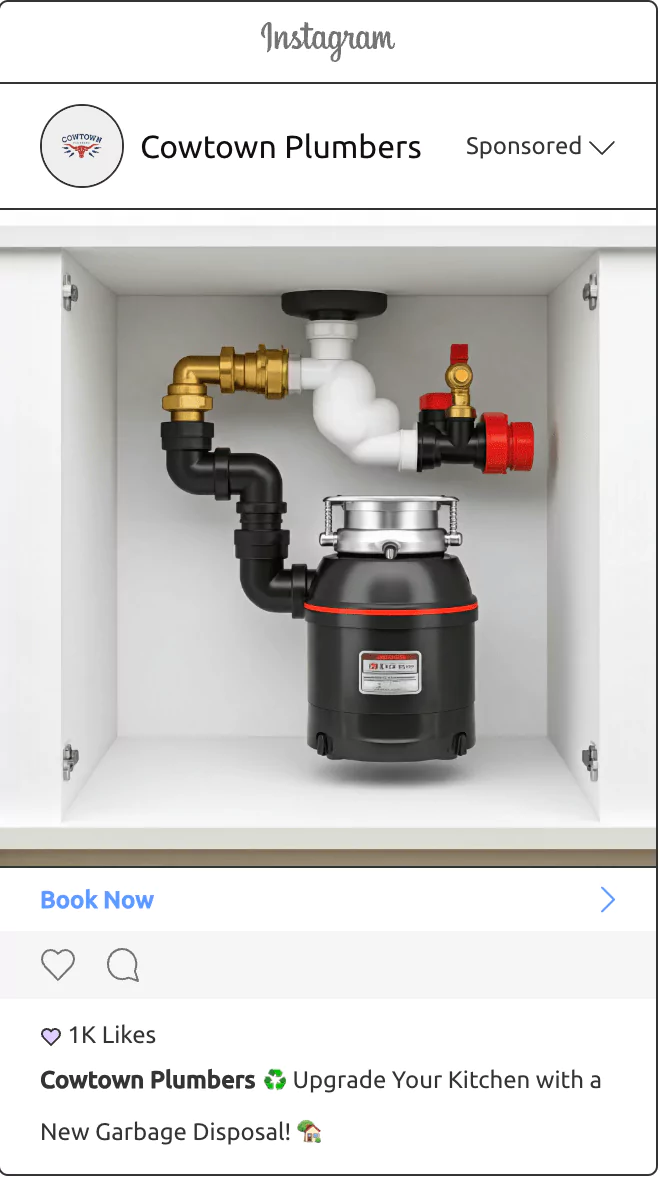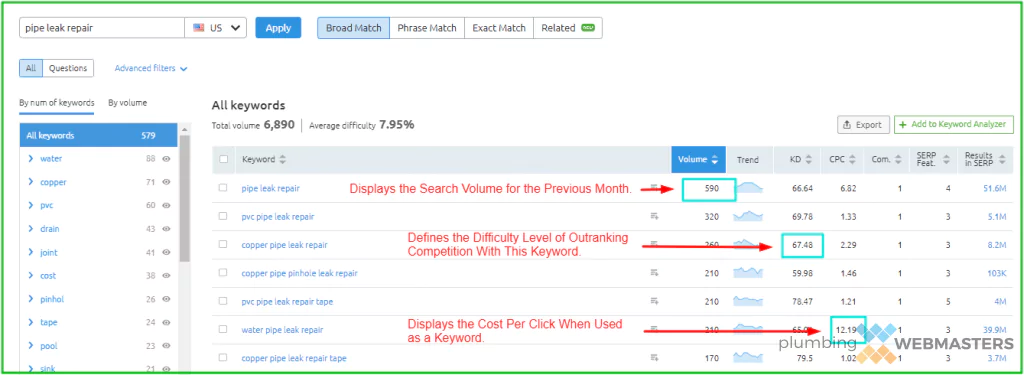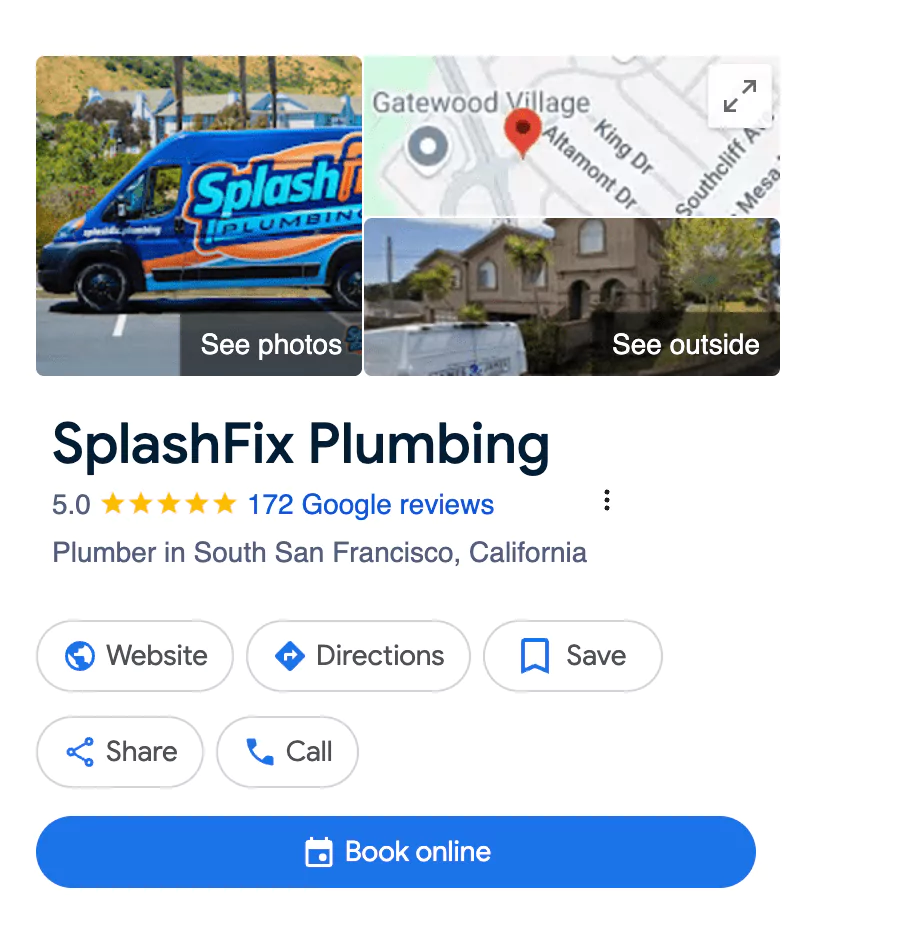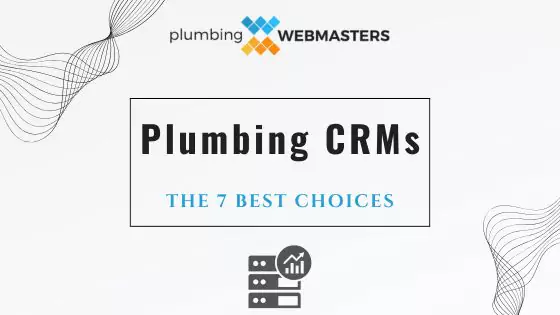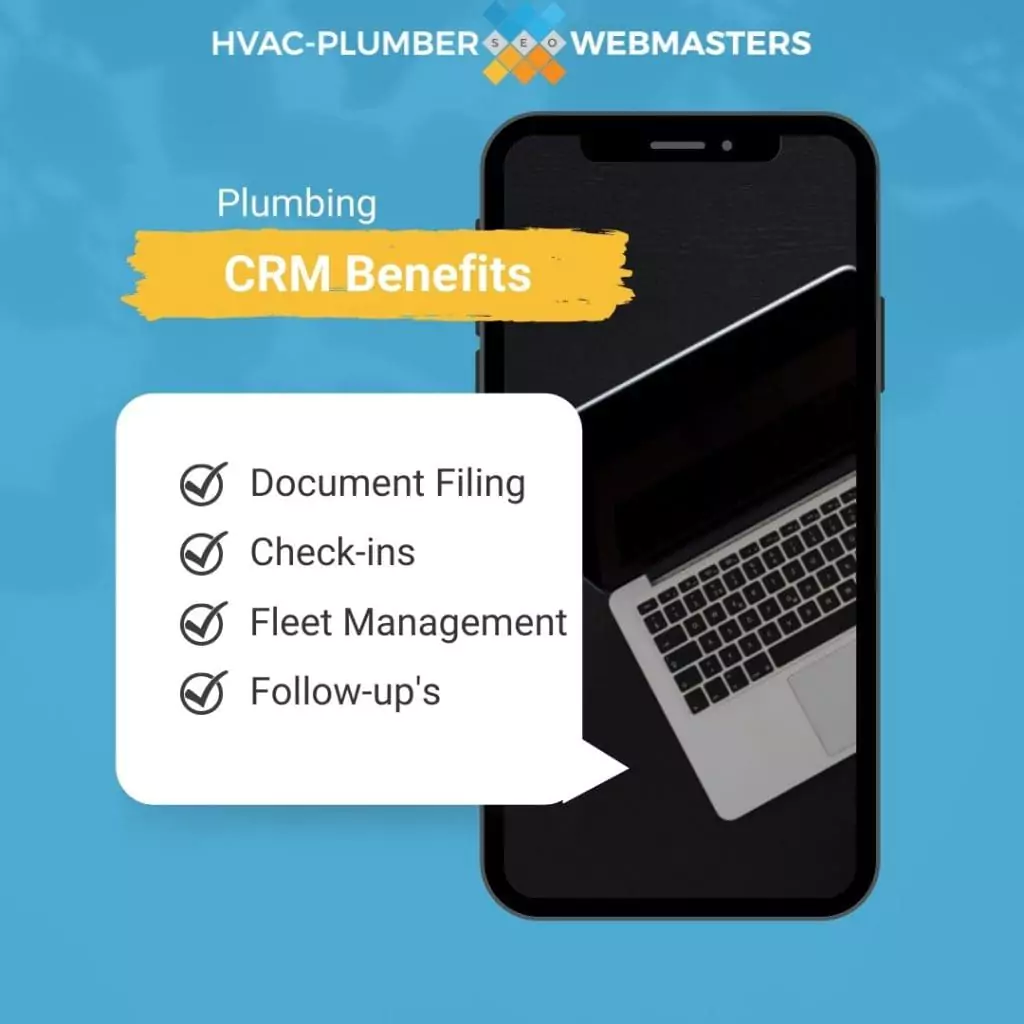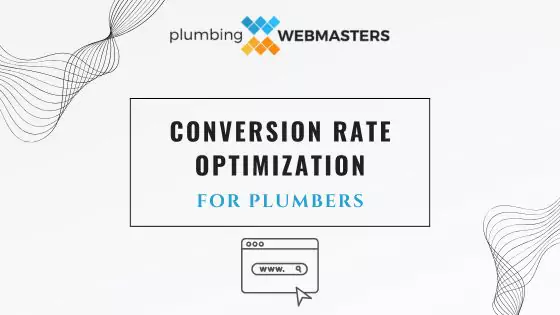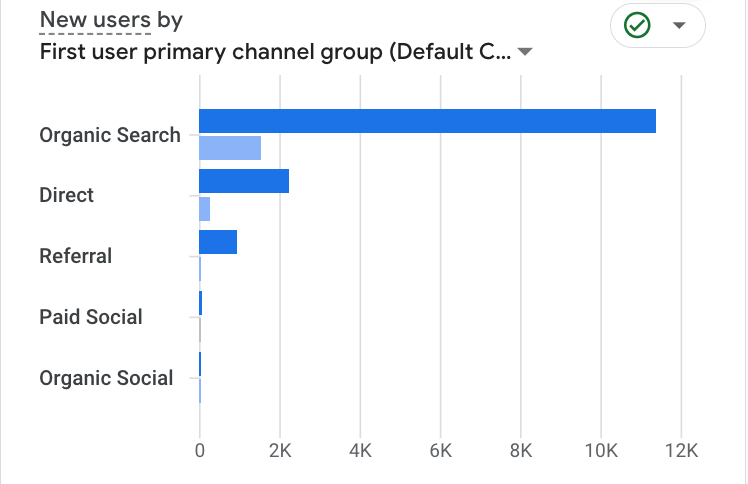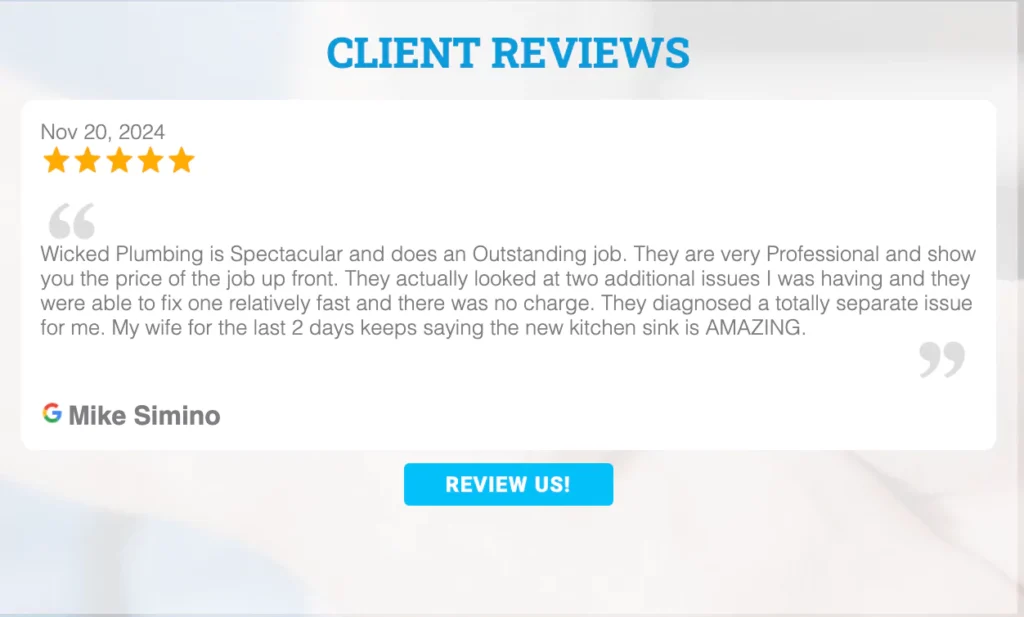The secret is out: 55% of consumers discover small businesses on social media platforms like Facebook, Instagram, TikTok, and YouTube.
The behavior of the average consumer has shifted in recent years as homeowners spend more time scrolling through video shorts on the most popular platforms than they do working.
The problem for most plumbers is that they don’t have enough presence where their consumers spend most of their time.
Considering these factors, social media for plumbers has emerged as one of the most essential components of a successful digital marketing strategy in 2025.
I’m Nolen Walker – the founder of Plumbing Webmasters – a digital marketing agency I founded over ten years ago.
In the following guide, I’ll outline my cutting-edge plumbing social media marketing strategy, which thousands of local plumbers have used throughout my career.
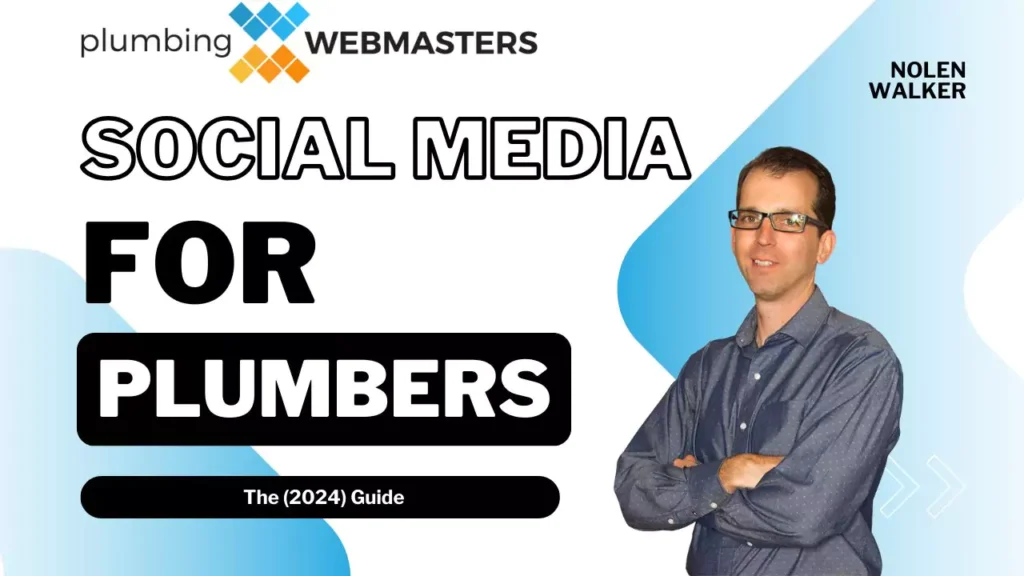
Why Plumbers Need Social Media Marketing
Consumer Reach
Americans spend over 2 hours on social media daily, which is quite a conservative estimate.
This alone should encourage local plumbing companies to create a noteworthy presence on the platforms their consumers use daily.
The opportunity cost of not appearing on these people’s Facebook and Instagram feeds is significant and can result in competitors overtaking your service areas.
Google Rankings
Google’s algorithmic shift toward E-E-A-T increases the value of off-page signals like active social media profiles, which signal to Google and others that your brand is legitimate.
Google prefers to show plumbing companies established on other digital platforms (besides Google) to prevent SEO manipulation from giving users poor results.
Google has even introduced SERP features that feature social media content, especially from YouTube (which Google owns) and, in some cases, from Instagram, Facebook, and TikTok.
Customer Engagement
Your existing plumbing clients spend as much time on social media as your future ones, and they often look to engage with the services they utilize on these platforms.
It’s not uncommon for customers to direct message their plumbing company through a social media platform, asking for clarification about a service or an appointment.
Plumbers should also be aware of how social engagement may impact their reputation, as some customers may use these platforms to air grievances about a bad experience with the service.
Industry Influence
Plumbing companies that establish a social media presence can quickly expand their influence in the plumbing industry.
By showcasing testimonials from satisfied plumbing clients and engaging with present and future customers, local plumbers can heavily impact the perception of their brand.
Diversifying influence across multiple platforms, such as Google, Facebook, Instagram, and TikTok, can foster a stronger and more sustainable plumbing business.
Reaching Plumbing Customers Through Social Media
Organic Social Media Content
Plumbing companies can post on social media platforms for free, though the content reach will be limited, especially at the beginning.
Examples of organic social media content include customer reviews, infographics, short videos, and job photos.
Don’t be alarmed if your content gets limited engagement. It’s still sending positive brand signals to Google and other platforms.
Most importantly, your existing customers will take note of your activity and potentially share your posts with people in their community.
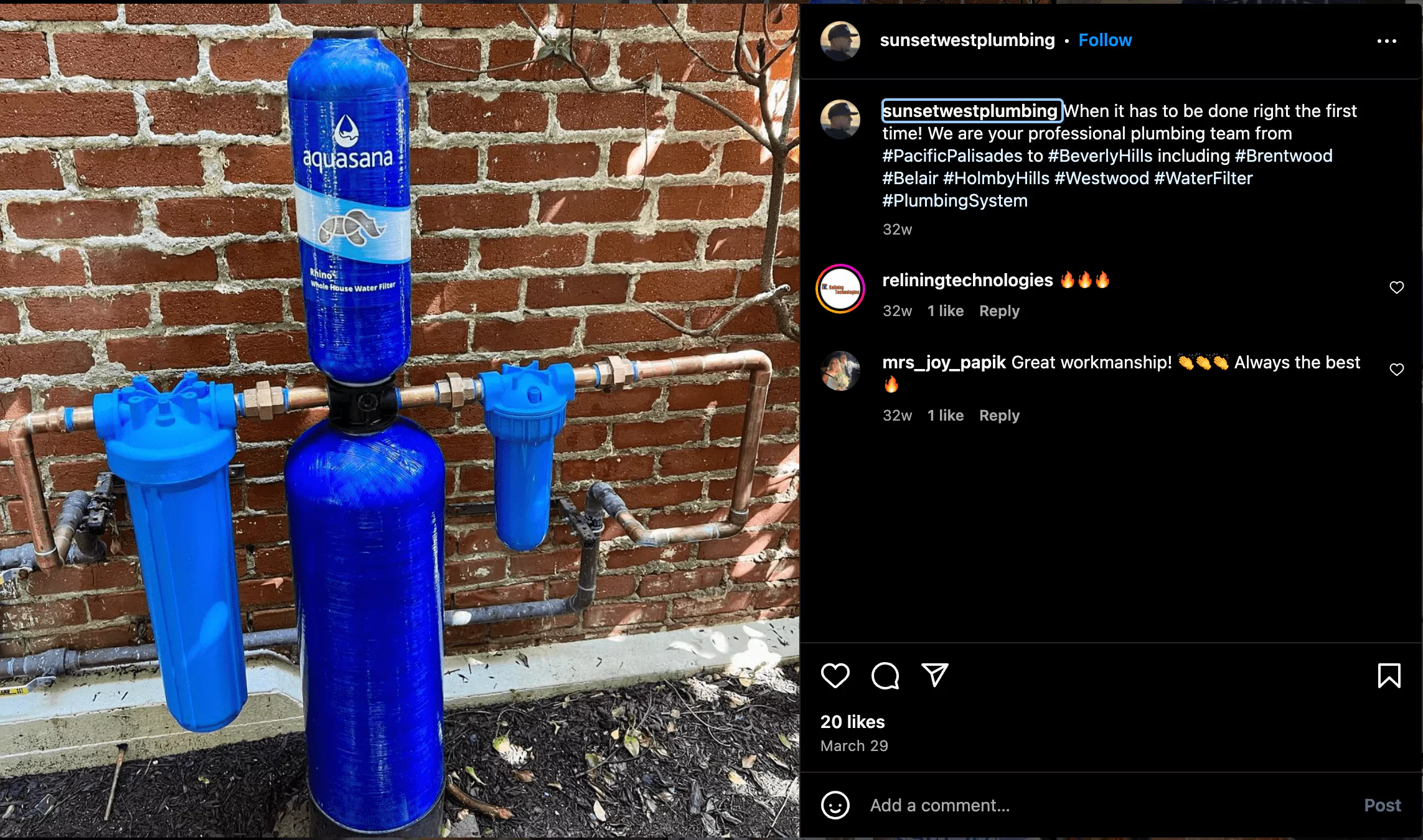
Paid Social Media Advertising
Paid Ads on social media significantly expand the reach of your plumbing company but require a legitimate budget and investment.
Considering this, plumbers should avoid running ads until they fully grasp the nuances of maximizing ROI and optimizing the cost per lead.
Meta ads, which handle advertisements on Facebook and Instagram, are widely regarded as the best social media advertising investment for local plumbers.
Meta platform ads can prioritize various goals, from brand awareness to direct lead capture, each of which may play a role in your digital advertising campaign.
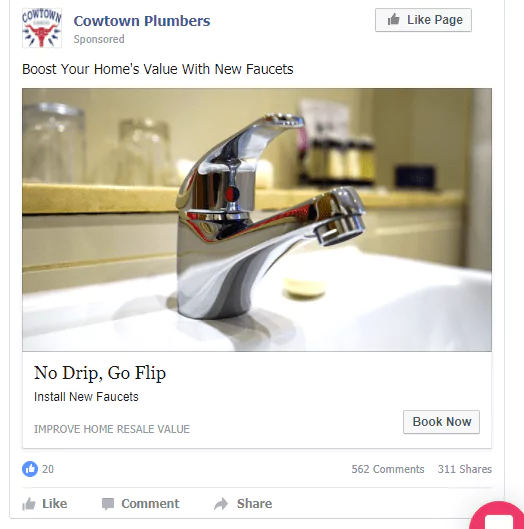
Best Social Media Platforms for Plumbers
Over 68% of American adults use Facebook, which makes it the best platform for plumbing companies to reach their consumers.
Facebook is unique from other social platforms in that it includes recommendations, essentially reviews of businesses.
As a result, your plumbing business page will include customer ratings, which are also part of your Bing knowledge panel results (when properly optimized).
Almost 64% of U.S. adults use Instagram, and the platform’s popularity has continued to increase yearly.
Instagram is part of Meta, which also owns Facebook, meaning ads run on Facebook can also be run on the Instagram platform.
IG’s strict focus on visual content, such as videos, stories, reels, and images, makes it unique to Facebook.
YouTube
The second most utilized social platform by American adults is YouTube, with 65% engaging with it.
YouTube is a video platform, meaning content shared on YouTube will be either long-form videos or YouTube Shorts, up to 60-second video clips.
While video content once required a large budget to produce, modern smartphones allow almost any local plumbing company to film topical videos of their business.

TikTok
A little over 50% of U.S. adults use TikTok, which has emerged as one of the fastest-growing social media platforms.
What was once considered a platform reserved primarily for teenagers, TikTok’s relevance among adults has surprised many industry forecasters.
Regardless of the societal shifts that led us to this point, plumbing companies must now establish a presence on TikTok to be taken seriously as a brand.
X
Over 40% of American adults use X (formerly known as Twitter), though it’s not considered a must-be place for local plumbing companies as the content focuses more on breaking news.
Nevertheless, some of your customers may look to air their grievances about your plumbing staff on X, which is known for its argumentative tone from users.
Content shared on X is expected to emulate real-time posts, meaning cookie-cutter images or infographics will look more like spam on this app.
Roughly 31% of U.S. adults use LinkedIn, limiting its value within a social media marketing strategy for plumbers.
Creating a LinkedIn business page and a personal LinkedIn profile as the plumbing business owner still makes sense to send favorable brand signals to Google.
Your chances of generating plumbing leads through LinkedIn are slim to none, but that doesn’t negate its potential impact on your digital brand.
About 38% of American adults engage with Pinterest, which, like Instagram, is a strictly visual social media platform.
Much like LinkedIn, plumbers are highly unlikely to gain new customers through Pinterest, but sharing photos of plumbing jobs can generate positive brand signals in the online ecosystem.
Pinterest posts also allow plumbing companies to link back to their websites, which counts as a nofollow link in Google’s SEO algorithm.
Social Media Posts for Plumbing Businesses
Video Posts
Shorter consumer attention spans make video content the highest priority for plumbing social media posts.
Plumbers can create video tutorials or showcase videos of recent jobs to capture followers’ attention.
YouTube, Instagram, and TikTok are especially useful for video posts, as users tend to scroll through hundreds of short clips quickly.
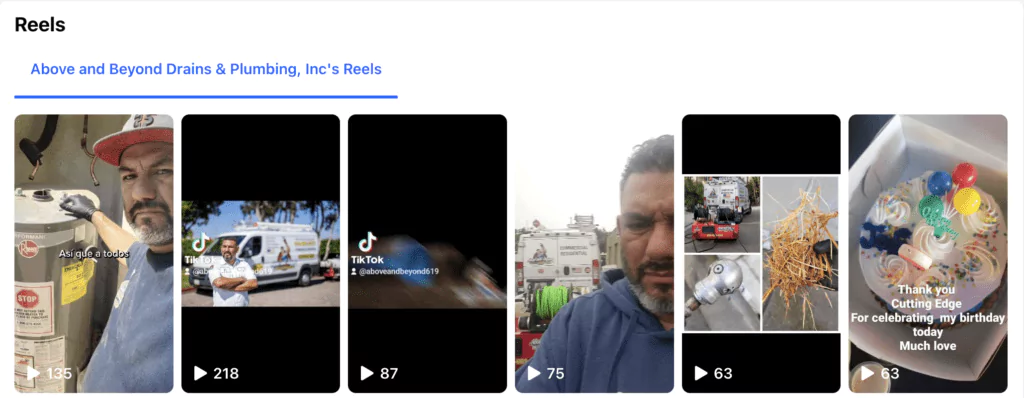
Client Testimonials
Sharing client reviews and feedback is an effective use of social media posts on all platforms.
You can use a tool like Canva to create image files based on text reviews from Google, Yelp, and other credible review platforms and then share those on Instagram, Facebook, and Pinterest.
Evidence of other customers’ good experiences with your company can persuade homeowners to consider using your service.
Sometimes, you can secure video testimonials from your most loyal customers, which you can then share in video format across platforms like YouTube, TikTok, and Instagram.
Native Posts
The key to breaking through organic social media algorithms is to create posts native to each platform and blend in with their standard content.
For example, an Instagram post of your staff at a company activity is an excellent example of a native Instagram post.
Alternatively, a genuine breakdown of the different brands of showerheads for the average homeowner in your service area would make a great post on Facebook or X.
Promotional Posts
Once your plumbing company has generated enough followers and post engagement, you can sprinkle in timely promotional posts to leverage this visibility.
You must be careful not to post too many promotions or discounts on your social platforms (unless you do so with paid ads), as the algorithm will begin to throttle your organic visibility.
When you share promotional posts, make sure the CTA creates urgency for users, such as through limited-time offers, and provides unique value like a new service type.
Plumbing Social Media Ideas & Tips
Highlight Employees and Clients
If you struggle to find inspiration for social media content, start with your employees and loyal clients.
You can easily create images or videos around your top employees and customers with the help of tools like Canva and iMovie.
Plumbers who showcase real people in their social media content create a sense of community and trust with their followers.
Join Groups and Communities
One proactive way to leverage social media is to join groups and communities, like Facebook Groups, related to the plumbing industry or your service location.
When you post inside these groups, avoid promotional content and focus more on organic contributions, as these can lead to business in the long run.
Social media groups foster more intimate content than public posts and are comparable to Reddit and Nextdoor, in which the community holds posts to a higher standard.
Engage With Comments
Users who leave comments on your posts are more likely to reengage with future posts if you acknowledge them.
Considering this, try responding to users who leave comments under your videos, images, and posts, especially if their feedback is complimentary.
The one instance in which you want to avoid engagement is when people (or bots) leave negative or derogatory comments under your posts – a form of trolling or spamming.
Utilize Hashtags
Including hashtags in your posts is a way to increase your organic reach, especially for new accounts.
Instagram, TikTok, and X are known for hashtags, which can help your post appear in search results on these platforms.
While hashtags can help you reach more users, they only pay off if they match the topic of your content.
Don’t include irrelevant hashtags. Doing so will cause people to resent your posts, reducing their visibility over time.
Post Plumbing Memes
Posting plumbing memes on your social media account is one way to get your followers laughing and engaging with your content.
When followers associate your post with laughter, they are more likely to view your company favorably.
Although memes can increase your engagement metrics, avoid becoming known only for memes. You want the focus to remain on the concept of your plumbing company and brand.
Publish DIY Tutorials
Nothing helps earn the good graces of followers like sharing free value through DIY video tutorials.
As a plumbing professional, you understand how to show people with basic handy skills how to complete minor plumbing repairs and can do so through video format.
Stress the importance of hiring a professional plumber (like you) for dangerous or complicated plumbing issues.
Funnel Users to Your Website
While most social media platforms aim to keep users on their platforms (instead of moving to yours), there are ways to funnel users to your website.
Maybe you’ve recently added a new service page to your plumbing website. In that case, you can share an infographic post highlighting the service and include “find out more through the link in the bio” within the caption.
Now, users can navigate to your main profile and click the link in your bio, which will take them directly to your website.
Free Checklist: Social Media for The Anti-Social Plumber
Next Steps for Plumber Social Media Success
Using the concepts outlined in this guide, local plumbers can leverage social media marketing to generate leads and expand brand awareness.
My agency, Plumbing Webmasters, helps local contractors maximize their online presence by building a digital brand.
Our services include social media marketing for plumbers, which is part of a broader digital marketing strategy to assist plumbers with consistently acquiring new customers.
The increasing popularity of social platforms like Instagram, Facebook, TikTok, and YouTube has required plumbers to take their social media strategies more seriously.
Plumbing companies can strengthen their digital brand and earn brand favorability by producing and sharing video content that appeals to homeowners and future customers.
Call my personal cell phone at (877) 388-9884 to discuss my detailed strategy for implementing social media for plumbers into your company’s online presence.

